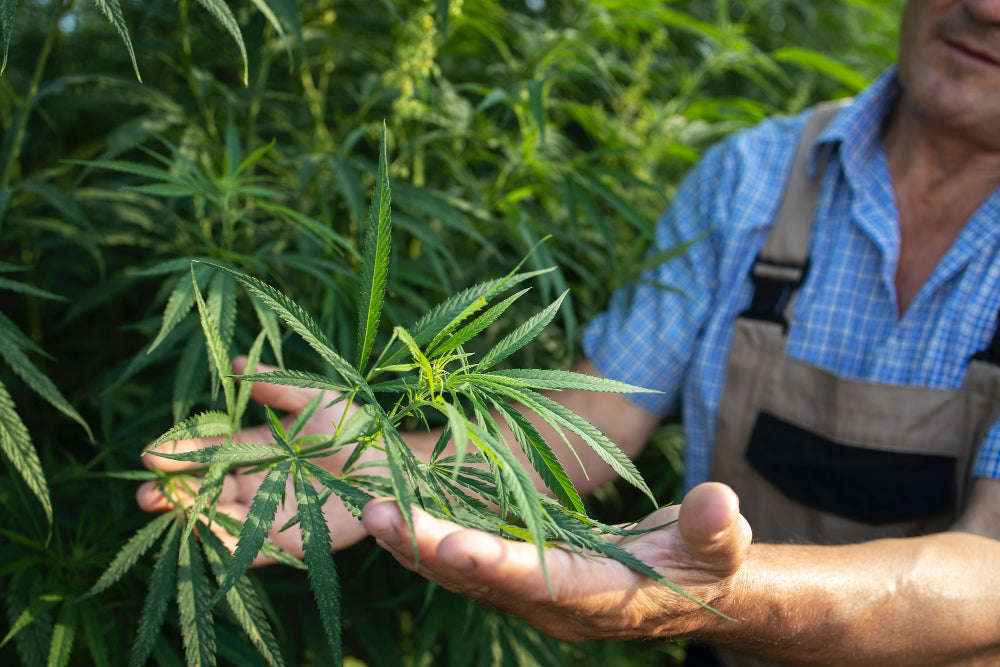The legal situation regarding cannabis in Italy is complex and multifaceted. Over the past decades, the legal framework has changed several times to reflect current social and medical knowledge. This article examines the historical development of cannabis policy and the current legal regulations in Italy.
Historical development of cannabis policy
The history of cannabis policy in Italy begins in the early 20th century, when cannabis was largely unregulated. In the 1970s, the Italian government introduced strict measures to control drug use and trafficking. These measures were further tightened over time. Only with the emergence of new scientific evidence and a global movement toward cannabis legalization did Italy begin to discuss the medical use of cannabis and eventually legalize it in 2007.
Current legal regulations
Today, Italian law clearly distinguishes between recreational and medical cannabis. Possession and trafficking of cannabis with high THC content is illegal and severely punished. Exceptions exist for cannabis with a THC content below 0.6%, known as "Cannabis Light," which may be sold legally. Medical cannabis can be purchased with a doctor's prescription and is subject to strict government controls regarding cultivation and distribution.
Medical cannabis in Italy
Medical cannabis plays an important role in the treatment of certain serious illnesses in Italy. Since legalization in 2007, patients have been able to obtain cannabis on prescription under certain conditions. This section examines the approval processes as well as the various uses and effects of medical cannabis.
Approval and prescription
The approval and prescription of medical cannabis in Italy are subject to strict regulations. Doctors may only prescribe cannabis when conventional therapies have failed or are unsuitable. Typical uses include chronic pain, multiple sclerosis, and chemotherapy-induced nausea. The Italian Medicines Agency (AIFA) monitors the quality and safety of prescribed products and ensures that prescriptions are carefully documented and regularly monitored.
Areas of application and effects
Medical cannabis is used in Italy to treat a wide variety of symptoms. In addition to chronic pain and spasticity in multiple sclerosis, it is also used to treat nausea and vomiting associated with chemotherapy. Other uses include anxiety, sleep disorders, and loss of appetite. The effects of cannabis are diverse and range from pain-relieving and anti-inflammatory effects to relaxing effects. Due to possible side effects such as dizziness and fatigue, close medical supervision is necessary to ensure safe use.
Cannabis Light: An emerging market
In recent years, the market for cannabis light has developed dynamically in Italy. This development has both economic and social implications and is an interesting topic for anyone interested in the legal and economic aspects of cannabis products. Below, we examine the definition and legality of cannabis light, as well as its economic significance.
Definition and legality
Cannabis Light refers to cannabis products with a THC content of less than 0.6%. These products are legal in Italy due to their low psychoactive effect and can be sold freely. However, they often contain high amounts of CBD (cannabidiol), known for its calming and anti-inflammatory properties. The legalization of Cannabis Light has paved the way for a variety of new products and business opportunities, from CBD oils to hemp flowers and extracts.
Economic importance
The legalization of Cannabis Light has led to a boom in the cannabis industry in Italy. Numerous companies have sprung up to meet the growing demand for legal cannabis products. This has not only led to the creation of new jobs but also generated significant tax revenue for the state. Furthermore, agriculture benefits from the demand for hemp plants used to produce Cannabis Light. Overall, this emerging market contributes significantly to economic development.
Social and political developments
The social and political landscape surrounding cannabis in Italy has changed significantly in recent years. Growing public support and political initiatives for legalization have intensified the debate about cannabis. In this section, we examine the role of popular initiatives and public opinion, as well as the various political initiatives and debates.
Referendum and public opinion
In Italy, there have been several popular initiatives for the legalization of cannabis in recent years. These initiatives reflect growing public support for a more liberal cannabis policy. Polls show that a growing number of Italians support the legalization of cannabis for recreational use, particularly among younger demographics. This development demonstrates that the topic of cannabis is becoming increasingly present in public debate and could potentially influence future legislative changes.
Political initiatives and debates
In addition to popular initiatives, there are also numerous political initiatives aimed at reforming cannabis policy. Various parties, primarily on the left of the political spectrum, are advocating for a relaxation of the laws. However, these initiatives are facing resistance from conservative forces who favor strict drug policies. The debates in parliament and in the public are intense, demonstrating how polarized the issue of cannabis is in Italy. The future development of legislation will depend heavily on these political disputes.
Challenges and future prospects
The legalization and acceptance of cannabis, especially light cannabis, faces various challenges while simultaneously offering exciting future prospects. Both political and societal hurdles significantly influence the development of this market. This section examines the key hurdles and possible future developments.
Political and social hurdles
The legalization of cannabis light and other cannabis products in Italy is accompanied by various political and social hurdles. One of the main factors is the resistance of conservative political forces who favor strict drug policies and oppose legalization. These groups argue that relaxing the laws could lead to an increase in drug abuse.
There is mixed social opinion on cannabis legalization. While younger generations and progressive groups support legalization, there are reservations and opposition among the older population and certain cultural circles. These diverging views make it difficult to implement a unified and liberal cannabis policy.
Possible future developments
Despite the existing hurdles, there are numerous possible future developments that could impact the market and acceptance of cannabis in Italy. An increasingly informed public and scientific studies emphasizing the medicinal benefits of cannabis could lead to broader social acceptance. This could increase political pressure to revise and liberalize legislation.
Furthermore, the economic importance of the cannabis light market could encourage political decision-makers to further advance legalization. Increased tax revenues and the creation of new jobs are strong arguments that have the potential to change the political landscape. Overall, the future of cannabis policy in Italy will depend heavily on social developments and political will.
Conclusion
A review of the current legal situation and developments surrounding cannabis in Italy provides valuable insights into a dynamic and controversial market. This conclusion summarizes the key points and provides an outlook on future trends and developments.
Summary of the main points
Italy has taken significant steps toward a more liberal cannabis policy in recent decades, particularly in the areas of medical cannabis and cannabis light. Despite this progress, strict legal regulations for high-THC cannabis remain. The political and social landscape remains divided, with progressive forces fighting for further legalization while conservative groups oppose it.
Looking to the future
The future of cannabis policy in Italy depends on many factors. Increasing public support and scientific evidence could pave the way for broader legalization. Economic benefits from the cannabis light market could also play a decisive role. It remains to be seen how the political and societal dynamics will develop, but the signs point to change and potential liberalization in the coming years.
For further information and professional psychological counseling on this and other topics, visit our website and make an appointment.







Leave a comment
This site is protected by hCaptcha and the hCaptcha Privacy Policy and Terms of Service apply.